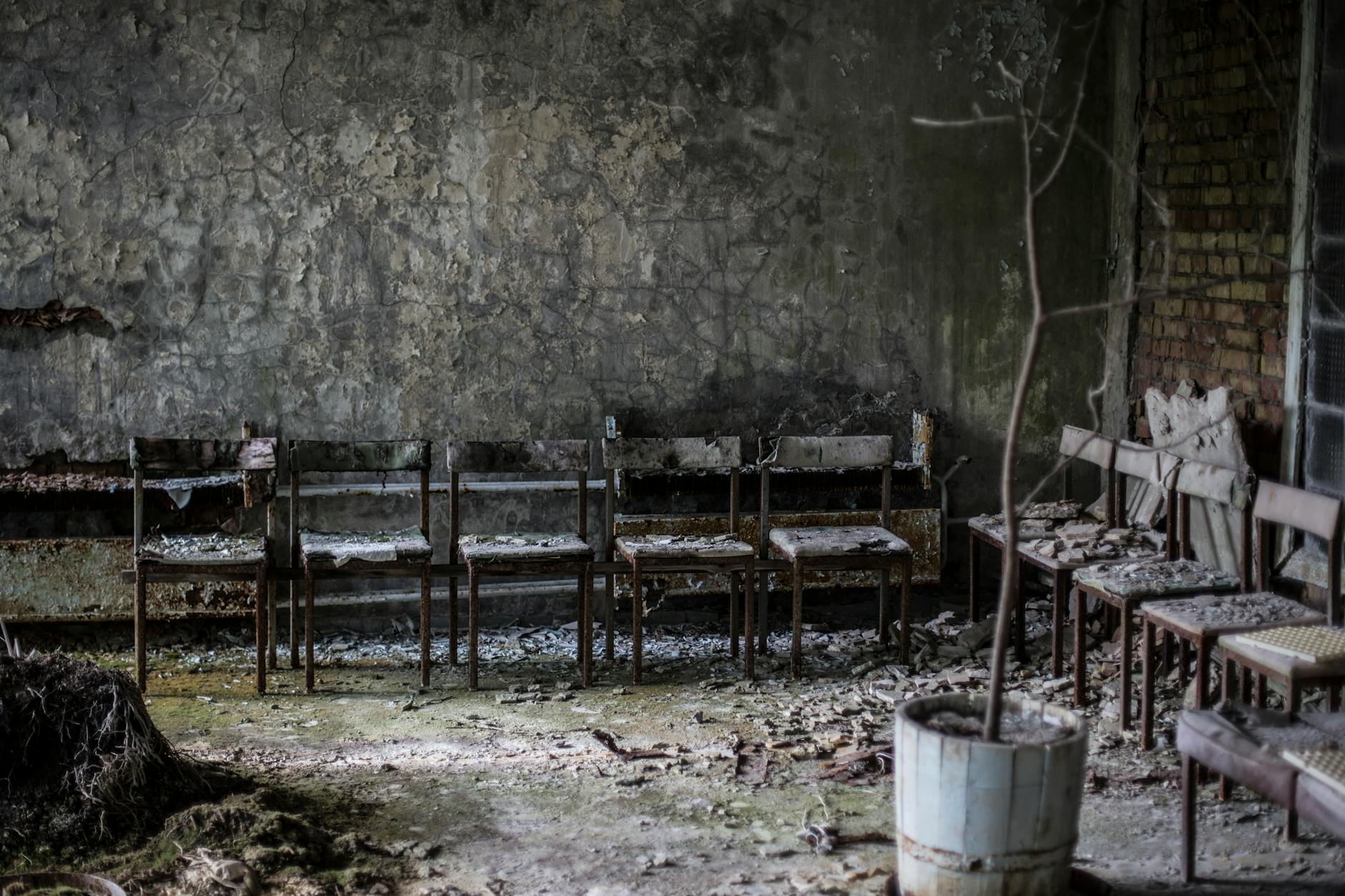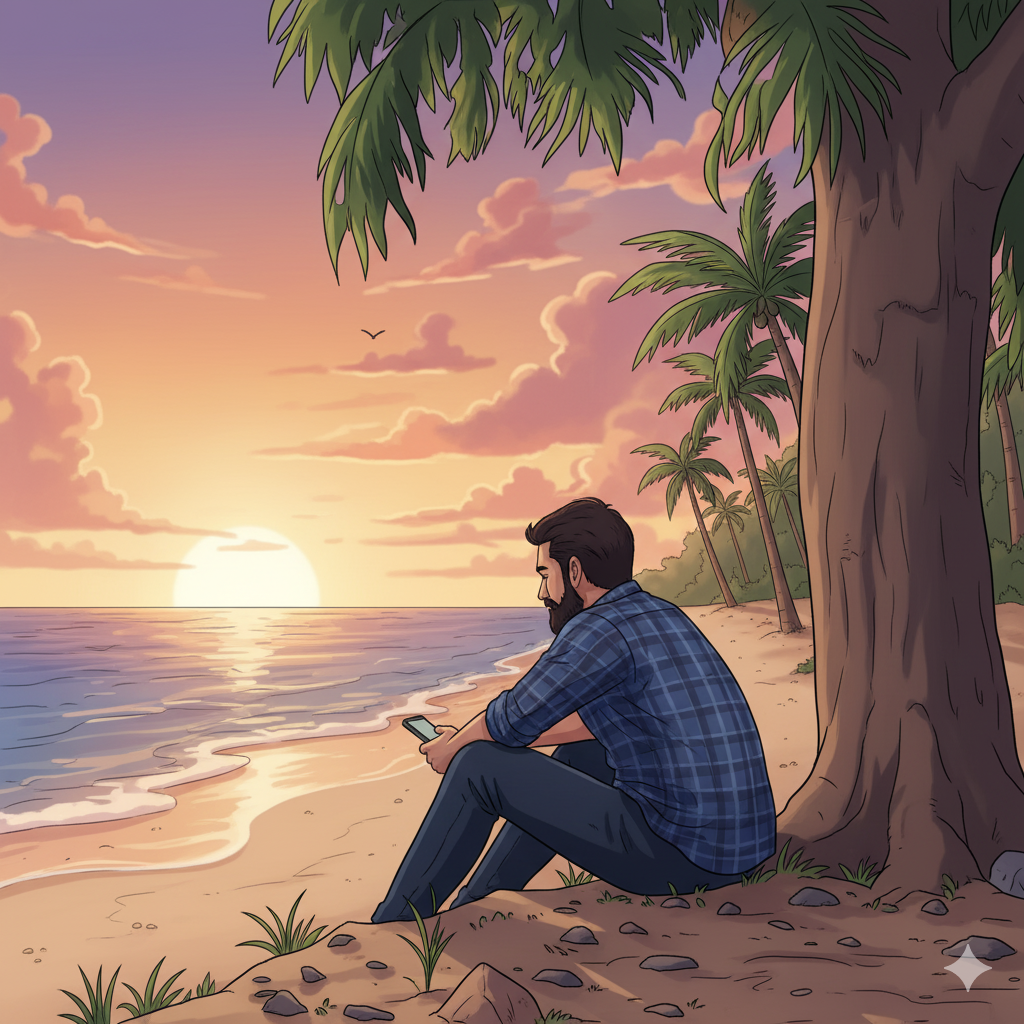The rust-colored dust swirled around Elias’s ankles as he shuffled through the skeletal remains of what was once a bustling marketplace. Buildings stood like hollowed-out skulls, their empty windows staring blankly at a sky perpetually choked with ash. The air, thick with the metallic tang of decay, clung to his threadbare cloak. He was old, older than anyone he’d ever met, and the weight of his years pressed down on him like the crumbling city itself. But it wasn’t the physical burden that bowed him; it was the invisible weight of memory, the echoes of laughter and tears, the ghosts of empathy that haunted him in this desolate, emotionless world. He was, as far as he knew, the last human alive who still remembered how to weep for others.
The cataclysm, they called it, though no one remembered what had caused it anymore. It hadn’t been a sudden explosion or a dramatic impact, but a slow, insidious erosion of something fundamental within the human spirit. Empathy, compassion, the very capacity to feel for another – it had all withered away, leaving behind a husk of humanity, driven only by instinct and self-preservation. Elias remembered a time when a child’s cry would evoke a mother’s comforting touch, when a friend’s grief would be met with shared tears. Now, a child’s cry was merely an irritant, and grief was a private, internalized gnawing that never saw the light of day.
He stopped before a crumbling fountain, its once-glistening waters now a stagnant pool of mud. He reached out a trembling hand, tracing the faded inscription on its rim: “Dedicated to the shared joys and sorrows of our city.” The irony was a bitter pill. He closed his eyes, and images flooded his mind – children splashing in the fountain, lovers whispering secrets, families sharing meals on the surrounding benches. He could almost hear the laughter, the murmur of conversations, the comforting hum of community. He opened his eyes, a single tear tracing a path through the dust on his cheek. He quickly wiped it away, ashamed. Weeping was a weakness in this new world, a dangerous vulnerability.
He continued his journey, his destination a dilapidated library on the outskirts of the city. It was a dangerous trek, the ruins teeming with scavengers, both human and animal, driven mad by hunger and desperation. Yet, the library held a fragile hope, a connection to the past, to the world that was. He clutched the worn leather-bound book under his arm, its pages filled with stories of love, loss, and sacrifice – emotions that were now as alien to this world as the stars were to the perpetually overcast sky.
As dusk settled, casting long, eerie shadows across the ruins, Elias reached the library. Its grand entrance, once adorned with intricate carvings, now lay in pieces, a testament to time and neglect. He stepped inside, the air thick with the scent of decaying paper and dust. The shelves, once overflowing with knowledge, now stood bare, their contents looted or consumed by the elements. Only a few scattered volumes remained, clinging precariously to their designated spots.
He made his way to a secluded corner, lit by a single flickering candle he had salvaged from a deserted shop. He carefully placed his book on a small, rickety table and began to read aloud. His voice, raspy with age and disuse, filled the silent library. He read of heroes and villains, of lovers and enemies, of triumphs and tragedies. He read of emotions long forgotten, of empathy and compassion, of the shared human experience.
He wasn’t sure if anyone was listening. He hadn’t seen another human in weeks. But he continued to read, driven by a desperate hope that somewhere, somehow, a spark of humanity still flickered in the darkness. He read late into the night, the flickering candlelight casting dancing shadows on the walls, until his voice grew hoarse and his eyelids heavy. He finally succumbed to exhaustion, his head resting on the open pages of the book.
He dreamt of a world bathed in sunlight, where children laughed and played without fear, where people held hands and shared their burdens, where tears were not a sign of weakness, but a testament to the depth of human connection. He awoke with a start, the dream clinging to him like a fading echo. The library was still dark, the candle long extinguished. He shivered, the cold seeping into his bones.
He rose stiffly and made his way to the shattered window, gazing out at the desolate landscape. The sun, a pale disc in the ash-filled sky, offered little warmth. As he stood there, a figure emerged from the shadows of a ruined building. It was a young woman, her face gaunt and her eyes hollow. She stared at him with a mixture of curiosity and suspicion.
Elias’s heart pounded in his chest. He hadn’t seen another human in so long, he had almost forgotten what it was like. He opened his mouth to speak, but no words came out. The woman approached cautiously, her hand resting on a crudely fashioned knife at her hip.
“Who are you?” she asked, her voice raspy and distrustful.
Elias swallowed, his throat dry. “My name is Elias,” he whispered.
“What are you doing here?”
“I… I read,” he gestured towards the library. “I read stories.”
The woman scoffed. “Stories are for children. They’re useless.”
Elias’s heart sank. He was about to turn away, resigned to his solitude, when he noticed something in the woman’s eyes, a flicker of something he hadn’t seen in a long time. Curiosity? Perhaps even a hint of longing?
He took a deep breath and said, “I read stories about a time when people cared for each other. A time when they wept for others.”
The woman’s expression softened, a flicker of confusion crossing her face. “Wept?” she repeated, the word unfamiliar on her tongue.
Elias nodded. He picked up the book and began to read, his voice trembling with a fragile hope. He read of a mother’s love for her child, of a friend’s unwavering loyalty, of the shared joys and sorrows that bound humanity together. As he read, he saw a tear trace a path through the dust on the woman’s cheek. She didn’t wipe it away.

He continued to read, his voice gaining strength, the words echoing through the ruined library, carrying with them the weight of memory, the ghost of empathy, the faint but persistent hope of a world reborn.
Days turned into weeks, weeks into months. Elias and the woman, whose name was Anya, continued to live in the ruined library, surrounded by the remnants of a forgotten world. Elias read, and Anya listened. Slowly, tentatively, other survivors began to gather, drawn by the flickering candlelight and the sound of Elias’s voice. They listened to his stories, and they began to remember. They remembered what it was like to feel, to care, to weep for others. The library, once a repository of forgotten knowledge, became a beacon of hope, a testament to the enduring power of human connection, a place where the last embers of empathy could be nurtured and fanned into a flame.
The world outside remained a desolate wasteland, but within the crumbling walls of the library, something precious was being rebuilt, something that had been lost for generations – the capacity to weep for others, the very essence of what it meant to be human.
And Elias, the old man who carried the weight of memory, found a new purpose, a new reason to live – to keep the flame of empathy alive, to remind humanity of what it had lost, and what it could one day regain.






Leave a Reply